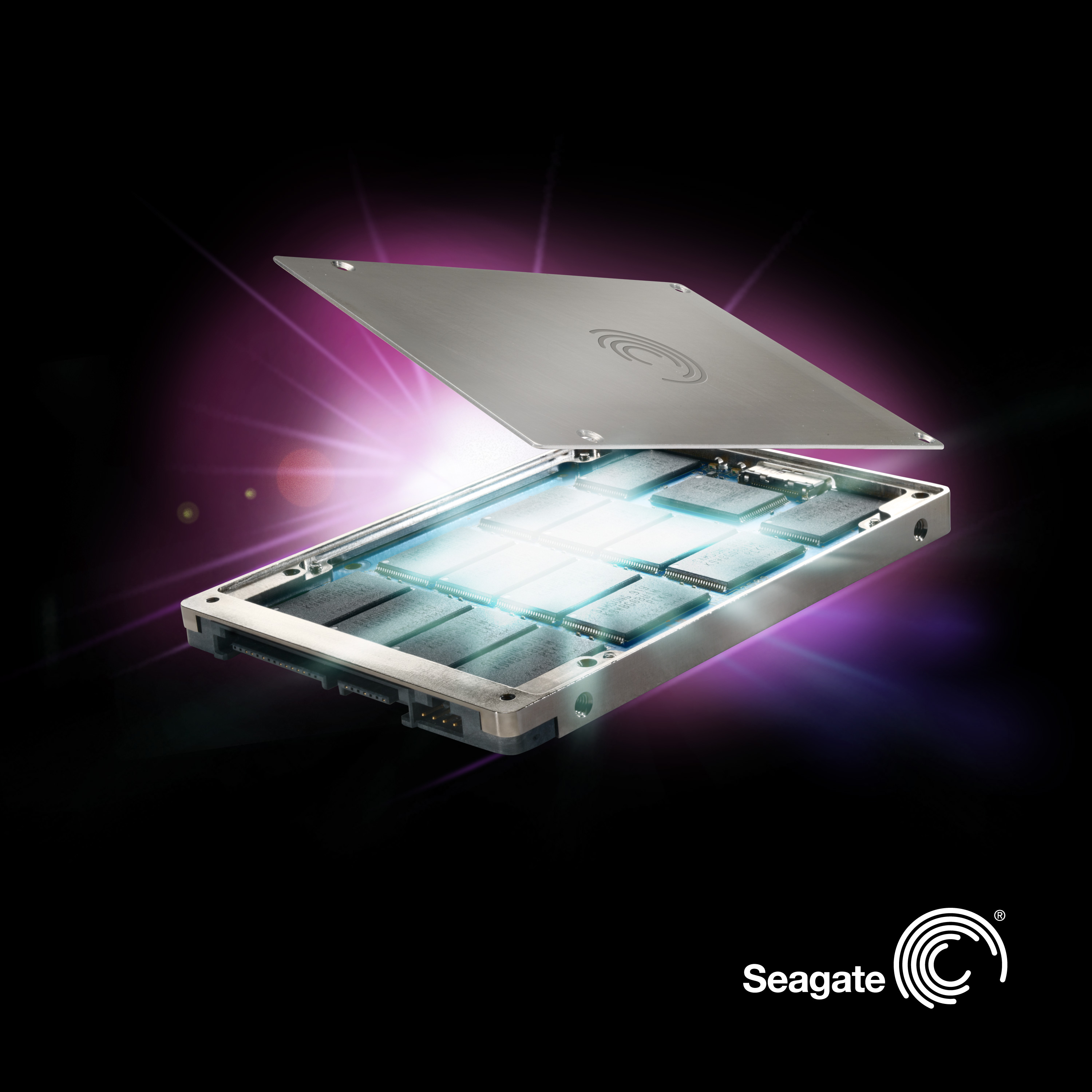Seagate Announces Pulsar SSDs for Enterprises
Seagate joins the SSD fray with Pulsar.
While magnetic-based storage is still the popular one today, it's due to capacity and cost. Most of us would envision that solid state drives will be the one storing our bits in our next-generation rigs – both for business and pleasure – and Seagate today formally announced its jump into the SSD market.
Seagate new SSD, dubbed the Pulsar drive, the first product in its new enterprise SSD family. Designed for enterprise blade and general server applications, the Pulsar drive uses single-level cell (SLC) technology, is available in capacities up to 200 GB, and is built in a 2.5-inch small form factor with a SATA interface. The drive can achieve a peak performance of up to 30,000 read IOPS and 25,000 write IOPS, 240MB/sec. sequential read and 200 MB/sec. sequential write.
“Seagate is optimistic about the enterprise SSD opportunity and views the product category as enabling expansion of the overall storage market for both SSDs and HDDs,” said Dave Mosley, Seagate executive vice president, Sales, Marketing, and Product Line Management.
While Seagate does offer many of its products for the consumer space, the company's announcement today is focused on a product for enterprises. Businesses looking to move over to SSD are more likely to select a new technology from an existing storage supplier rather than a flash memory newcomer – something that Seagate is betting on.
“With its well-established OEM and eco-system relationships and a long history of serving global storage OEMs, Seagate is in a unique position to fortify its leading enterprise storage position with its entry into the enterprise solid state storage market,” said Dave Reinsel, vice president of research firm IDC.
For enterprise peace of mind, Seagate's Pulsar SSD provides its customers a 0.44 percent annualized failure rate with a five-year limited warranty.
Seagate shipped Pulsar units to select OEMs in September 2009 and is currently available to OEM customers for qualification.
Get Tom's Hardware's best news and in-depth reviews, straight to your inbox.
For the rest of us consumers, we asked Seagate if it had plans for an SSD line for enthusiasts' personal systems. While the company remained tight lipped on future products, Seagate did tell Tom's Hardware that Pulsar is just the first of many solid state drives to come.
-
El_Capitan It's nice to see a leading HDD company adapting to the storage solutions climate with product development rather than marketing. However, if it's reliability these "enterprises" are looking for, shoving products out to enthusiasts to get feedback and critiques is the best way for these enterprises to show how well they're faring on their new SSD venture... though perhaps they don't want that to happen for fear of what problems will be pointed out to them later down the line.Reply
Reliability is key for enterprise storage solutions, with speed, capacity, and cost being determined from a company-to-company basis. I'd be more tempted to buy an Intel SSD had I not read about so many issues about stuttering, failures, bricks from trim firmware updates, lack of trim firmware updates, etc.
Not to mention the cost. If a company's making money already with the storage solution they already have, why spend more to make things faster when they can just optimize their current set-up? There's no reason to take that chance, it's just too risky. -
IzzyCraft What's amazing if that when you really open the casing to it that light really does appear.Reply -
buwish It's a bold move to say the least; but it was only a matter of time before enterprise SSD's started to make an appearance. Hopefully, enterprises won't be turned off by the high price tag.Reply -
back_by_demand Seagate Maxtor was always going to make an entry to the SSD market, it was just a matter of when. I personally am enjoying my OCZ drive, but the future will be Seagate pumping out drive after drive and costs plumetting.Reply -
amnotanoobie jacobdrjWhy are we not seeing more hybrid drives, particularly in the Enterprise market?Reply
Because they particularly weren't very effective. I believe there was a review of a hybrid drive from another manufacturer and it performed pretty much like a normal hard drive (not even challenging the raptor). Also a hybrid drive is harder to make a firmware for, because you'd need to consider two storage locations rather than one. -
jacobdrj Cool. Thanks. I guess sometimes simple and separate is better than complex and combined...Reply -
techguy378 A hybrid drive is only useful if it has enough flash memory to store the entire OS. Since Windows Vista requires about 20GB of space, this would make the cost of a decent performing hybrid drive prohibitive.Reply -
one-shot There is a great preview of the drives over at Anandtech. I'd recommend a look if you want further info.Reply

